Keynotes & Experts
Keynotes & Experts
Prepare to be inspired by our lineup of esteemed keynote speakers and experts.
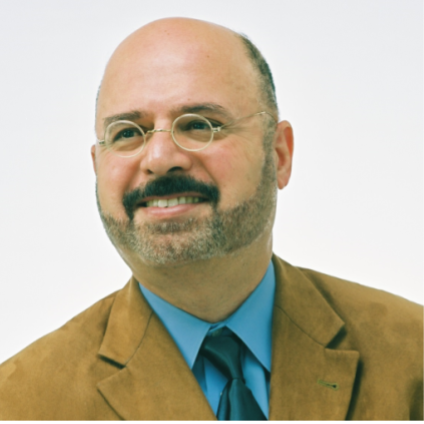
Professor Dr. Hamido FUJITA (Life Senior Member IEEE)
https://www.webofscience.com/wos/author/record/1136840
Executive Chairman of i-SOMET Incorporated Association, Japan https://i-somet.org/, Distinguished Professor: Iwate Prefectural University, Japan, Professor at Malaysia-Japan International Institute of Technology, Universiti Teknologi Malaysia, Editor-in-Chief: Applied Intelligence (Springer), Editor-in-Chief of International Journal of Healthcare Management (Taylor & Francis), Emeritus Editor-in-Chief: Knowledge-Based Systems, Vice President of International Society of Applied Intelligence, Doctor Honoris Causa (Óbuda University, Hungary), Doctor Honoris Causa (Timisoara Technical University, Romania)
He is a Distinguished Professor at Iwate Prefectural University, Japan. He is also a contracted Professor at the Malaysia-Japan International Institute of Technology(MJIIT), Universiti Teknologi Malaysia. He is also a Research Professor at the University of Granada (Spain), Universiti Teknologi Malaysia, and HUTECH University Vietnam; Expert Excellence Professor at the Shanghai University of Medicine & Health Sciences. He is currently the Executive Chairman of the i-SOMET Incorporated Association Japan. He is a Highly Cited Researcher in Cross-Field for the years 2019 and 2020, 2021, and 2022 in the Computer Science field, respectively, from Clarivate Analytics. He is Editor-in-Chief of Applied Intelligence (Springer), Editor-in-Chief of Healthcare Management (Tayler&Francis), Editor-in-Chief of Knowledge-Based Systems (2010-2020), and Emeritus Editor of Knowledge-Based Systems
https://www.webofscience.com/wos/author/record/D-6249-2012

Professor Dr. Andrea Matta
Andrea Matta is Full Professor of Manufacturing and Production Systems at Department of Mechanical Engineering of Politecnico di Milano. He graduated in Industrial Engineering at Politecnico di Milano where he develops his teaching and research activities since 1998. He was Distinguished Professor at the School of Mechanical Engineering of Shanghai Jiao Tong University from 2014 to 2016 and Guest Professor between 2017-2019. He has been visiting scholar at Ecole Centrale Paris (France), University of California at Berkeley (USA), and Tongji University (China). He is member of the technical committee of MADE Competence Center. His research area includes analysis, design and management of manufacturing and health care systems. He has published 190 scientific papers on international and national journals/conference proceedings. He is Editor in Chief of Flexible Services and Manufacturing Journal since 2017, past member of editorial board of OR Spectrum journal and IEEE Robotics and Automation Letters journal. He is member of scientific committee in several international conferences. Member of the Steering Committee of PhD on Mechanical Engineering. Member of the ADA University Advisory Board. He was awarded with the Shanghai One Thousand Talent and Eastern Scholar in 2013.
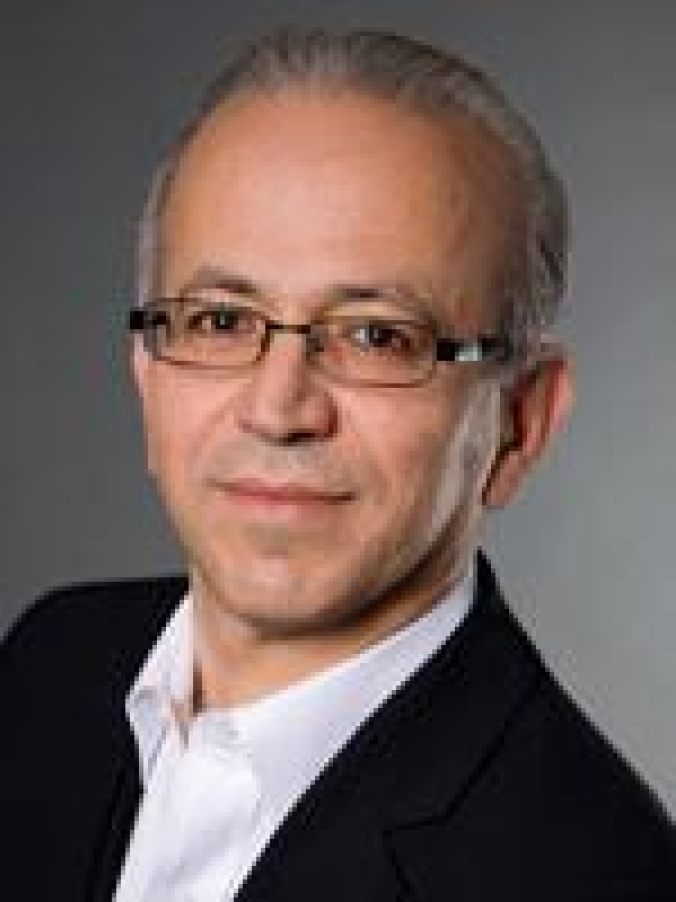
Professor Dr. Mohsen A. Jafari
Mohsen A. Jafari is a professor and chair of the Department of Industrial and Systems Engineering, Rutgers School of Engineering, a principal at the Rutgers Center for Advanced Infrastructure and Transportation (CAIT) and founder of the Laboratory for Energy Smart Systems (LESS). Since 2006, Professor Jafari’s research focus has been on control and optimization of energy systems with applications in Distributed Energy Resources, smart connected buildings, Demand Side Management, and Electrical Vehicles. Jafari has also been active in research concerning transportation safety and mobility since 2005. Prior to 2005, Professor Jafari’s research focused on additive manufacturing of ceramic actuators and sensors, and intelligent manufacturing in food and pharmaceutical applications. He is one of the pioneers in architecting and building the first multi-material Solid Free Form (SFF) fabrication system with online image-based process control sponsored by the ONR-MURI program. Overall, Professor Jafari has been Principal and Co-principal Investigator to over $23M R&D funding from the US and international government agencies, and industry. Professor Jafari’s work has led to 120 refereed publications and patents. He actively collaborates with universities and national labs in the US and abroad and has advised twenty three Ph.D. theses, and nine post-doctoral and research fellows. Presently, Professor Jafari is advising an additional four Ph.D. theses and one Post-Doc. He is a member of IEEE and was recipient of the IEEE excellence award in service and research, SAP curriculum award and two Transportation safety awards. Professor Jafari has been a consultant to several fortune 500 companies, and national and international government agencies.

Professor Dr. J. George Shanthikumar
J. George Shanthikumar is Distinguished Professor of Management and the Richard E. Dauch Chair in Manufacturing and Operations at Purdue University. Previously a Chancellor’s Professor at UC Berkeley, he is internationally recognized for his contributions to operations research, stochastic modeling, simulation, and sustainable supply chain management.
Author of over 300 papers and several key books, including Stochastic Models of Manufacturing Systems, he is a Fellow of INFORMS and POMS and has served on editorial boards of top journals like Management Science and Operations Research.
His applied research has shaped real-world practices in companies like Intel, IBM, and KLA-Tencor, where his work led to patents and innovations in semiconductor manufacturing. For students, Dr. Shanthikumar’s career illustrates how rigorous academic research can create real impact in global industry.
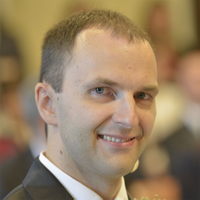
Professor Dr. Mauro Gaggero
Title: Control, Optimization, and Machine Learning: A Unified Approach to Industrial Problem Solving
This lecture will present examples of how control, optimization, and machine learning techniques can be successfully combined together to address different types of problems in the industrial world. The examples will range from logistics applications to robotics ones, passing through case studies related to computer science. After a brief introduction on the fundamentals of control and optimization, students will first learn how to formalize a model describing the main features of the problem at hand, and then how to apply control and optimization techniques to pursue given performance goals. Finally, some hints on the use of machine learning for performance boost will be discussed.
Mauro Gaggero is a senior researcher at the National Research Council of Italy (CNR), Institute of Marine Engineering. His research combines theoretical and applied approaches in areas such as dynamic optimization, optimal estimation, and control of partial differential equations. He also works on predictive control and optimization of logistics systems, robotic networks, IT systems, least squares methods, data-driven learning, and piecewise-affine approximation. His interdisciplinary expertise connects advanced mathematical modeling with real-world engineering applications.

Professor Dr. Enrique Herrera‑Viedma
Enrique Herrera‑Viedma is Vice‑Rector for Research and Knowledge Transfer at the University of Granada, Spain, and Full Professor of Computer Science and Artificial Intelligence. He is a founding member of the Soft Computing and Intelligent Information Systems research group, director of SECABA Lab, and affiliated with the Andalusian Institute of Data Science and Computational Intelligence (DaSCI). His academic work focuses on intelligent systems, decision-making, and AI applications in information and library science.
He is an IEEE and IFSA Fellow, a member of Academia Europaea, and Vice President for Cybernetics in the IEEE Systems, Man & Cybernetics Society. Recognized as a Highly Cited Researcher in Computer Science (2015–2022), Prof. Herrera‑Viedma combines academic excellence with institutional leadership and strong engagement in research policy, innovation, and transfer of knowledge.

Lecture on Port Virtual Lab and International Trade
This two-hour expert lecture dives into the transformative power of the Port Virtual Lab (PVL) platform in reshaping education for logistics and international trade. Covering key topics such as intermodal and multimodal transport, supply chain digitization, sustainability, and global trade operations, the session shows how advanced simulations mirror real-world port community interactions. Participants will learn how to plan, optimize, and execute complex logistics strategies, combining theory with interactive platform demonstrations that highlight the digital tools and collaborative methods shaping the future of global trade.
PVL Flash Lab
PVL Flash is an intensive three-hour gamified training session designed to immerse participants in the real-world dynamics of logistics and international trade. Through data-driven simulations, interactive challenges, and live team competitions, learners sharpen their problem-solving, teamwork, and decision-making skills. With real-time rankings and instant feedback, participants experience the pressures and opportunities of modern supply chain management, bridging the gap between classroom theory and practical application, while gaining valuable insights into sustainable and efficient commerce.
Eduard Rodés
Director, Escola Europea – Intermodal Transport (Barcelona, Genoa, Civitavecchia, Palermo)
Eduard Rodés is the Director and founder of the Escola Europea – Intermodal Transport, a leading European reference center for training in maritime and intermodal logistics. An economist with an MBA from IESE Business School, he has pioneered educational projects that merge innovation, sustainability, and experiential learning. He is the creator of groundbreaking initiatives such as the Port Virtual Lab (PVL) and has held leadership positions at the Port of Barcelona. A regular lecturer at universities across Europe and the Mediterranean, he was awarded the prestigious Mediterranean Medal by ASCAME in 2023 for his significant contributions to regional cooperation and sustainable growth.
Alessia Mastromattei
Country Manager, Escola Europea – Intermodal Transport (Civitavecchia, Palermo, Genoa)
Alessia Mastromattei serves as the Country Manager for Italy at the Escola Europea – Intermodal Transport. With a background in Oriental Languages and pursuing a Master’s in International Relations, her career is dedicated to innovating logistics education. She leads the operational strategy for the Italian offices and spearheads key European projects focused on logistics and education. A multilingual expert with a passion for experiential learning, Alessia is committed to shaping the next generation of logistics professionals by driving initiatives that integrate sustainability, digital transformation, and cross-border collaboration.

Professor Dr. Jun Sasaki, Faculty of Informatics, Yamato University, Japan
Jun Sasaki worked at the Communications Network Laboratories of NTT (Nippon Telegraph and Telephone Corporation) from 1981 to 1998. In 1993, he received a Ph.D. from Tohoku University in Japan on “Highly Reliable Optical Networks”. From 1998 to 2023, he promoted research and education on information construction methodologies, performance evaluation of information systems, and regional information systems at the Faculty of Software and Information Science, Iwate Prefectural University. From 2018 to 2019, he was a distinguished professor at the University of Granada. In 2023, he moved to the Faculty of Informatics, Yamato University, Osaka, Japan as a professor. He has served as an organizing chair in many times, for example, WSEAS (World Science and Engineering Academies and Association), ICSSE (IEEE International Conference on Systems Science and Engineering), IEA/AIE (International Conference on Industrial Engineering and Other Applications of Applied Intelligence Systems), SOMET (International Conference on Intelligent Software Methodologies, Tools, and Techniques), and ITDRR (IFIP WG 5.15 Conference on Information Technology for Disaster Risk Reduction). He is currently a member of IEEE, Vice Chair of IFIP WG 5.15, the Information Processing Society of Japan, and the Institute of Electronics, Information and Communication Engineers of Japan. He is now a Professor Emeritus of Iwate Prefectural University, a director of i-SOMET Incorporated Association, Japan i-SOMET (https://i-somet.org/).
In recent years, he has been researching Tourism Planning Systems using generative AI, Information Systems for Disaster Risk Reduction, and Solution for High-aged Society using Information Communication Systems.

Professor Dr. José Ramón Trillo Vílchez
Title: AI-Powered Crowdfunding: How Artificial Intelligence is Revolutionizing Fundraising
Crowdfunding is no longer just about good ideas—it’s about smart decisions, precise targeting, and data-driven storytelling. In this two-hour lecture, we will uncover how Artificial Intelligence is reshaping the way campaigns attract backers, set goals, and deliver results. From predicting funding success to crafting persuasive messages tailored to specific audiences, AI is empowering creators to work smarter and reach further. Real-world examples will show how machine learning, sentiment analysis, and predictive models are helping campaigns stand out in a crowded market. We will also address the ethical and privacy challenges that come with these technologies, offering a glimpse into the future of fundraising where human creativity and AI innovation go hand in hand.
Dr. José Ramón Trillo Vílchez is Assistant Professor at the University of Zaragoza and holds a PhD in ICT from the University of Granada. With a multidisciplinary background in mathematics, computer engineering, and cybersecurity, his research focuses on group decision-making, fuzzy logic, artificial intelligence, and sentiment analysis. He has authored over 70 scientific publications and participated in numerous international research projects. His work has earned him several awards, including Best Paper at IEA/AIE 2022 and ITQM 2023, and recognition for innovation in applying AI to social and educational challenges.
Section: Causal models and Futures Studies for Social Strategic Foresight
This module introduces doctoral students to the combined use of causal models and futures studies as tools for strategic foresight in the social sciences. By bridging quantitative approaches to causal inference with forward-looking perspectives, the course encourages participants to connect methodological rigor with anticipatory thinking. The program integrates lectures, seminars, business games, and hands-on sessions, allowing students to strengthen both their analytical and reflective skills. Special attention is given to how causal modeling and scenario-based methods can be applied to understand and govern processes of social and technological change. The aim is to provide young researchers with a conceptual and practical toolkit to explore complexity, evaluate alternative trajectories, and support informed decision-making. Additionally, students will have the opportunity to apply theory to real-world cases, working in teams to develop practical and innovative solutions. Designed as an interdisciplinary learning experience, the module enhances doctoral training by fostering the ability to link empirical evidence with long-term strategic visions.
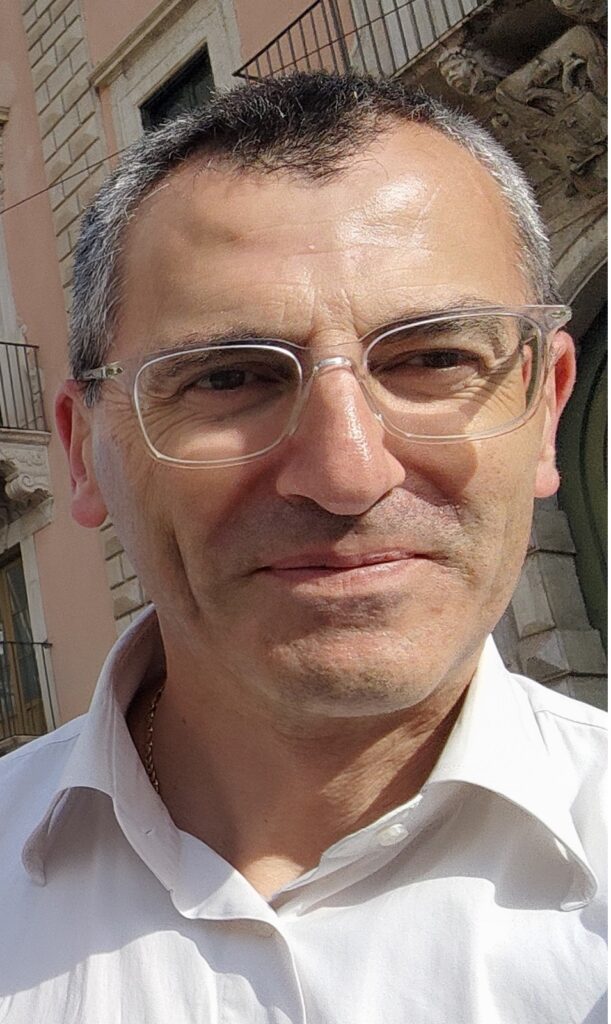
Professor Dr. Simone Di Zio
Lecture: Introduction to Futures Studies
Seminar: Futures for Technological Change
These lessons develop a forward-looking lens to complement causal and modelling work. Participants learn how to craft scenario logics under deep uncertainty (STEEP lenses, morphological analysis, cross-impact thinking), and how to integrate expert judgment (Delphi variants, including spatial/real-time adaptations) with empirical evidence. The focus is on building boundary objects – scenario narratives, early-warning indicators, and decision signposts – that engineers, managers, and policymakers can jointly use. Case sketches illustrate the translation from foresight artefacts to governance and investment choices, including ethics-by-design and alignment with the EU AI Act.
Simone Di Zio is a Full Professor of Social Statistics at “G. D’Annunzio” University, Chieti-Pescara. His research significantly advances the field of Futures Studies, particularly through the development and application of innovative quantitative methods for scenario building and opinion convergence. He is recognized for pioneering spatial adaptations of classical foresight techniques, including the Spatial Delphi, Real-Time Spatial Delphi, and Spatial Shang, which integrate georeferenced data for enhanced territorial analysis.
Professor Di Zio’s work also leverages Geographic Information Systems (GIS) for Spatial Decision Support Systems and incorporates advanced statistical methodologies such as robust ranking, fuzzy clustering, and Artificial Intelligence models, including Generative Adversarial Networks (GANs), to refine Delphi-based scenarios and overcome inconsistencies in group decision-making processes like the Analytic Hierarchy Process (AHP). He is the founding coordinator of FutureSIS, the Italian Statistical Society’s group dedicated to Statistical Methodologies for Futures Studies and Strategic Foresight, and serves as Co-Chair for the Italian Nodes of The Millennium Project and Foresight Europe Network. His expertise also extends to teaching “Futures Studies and Statistics” at master and PhD levels.
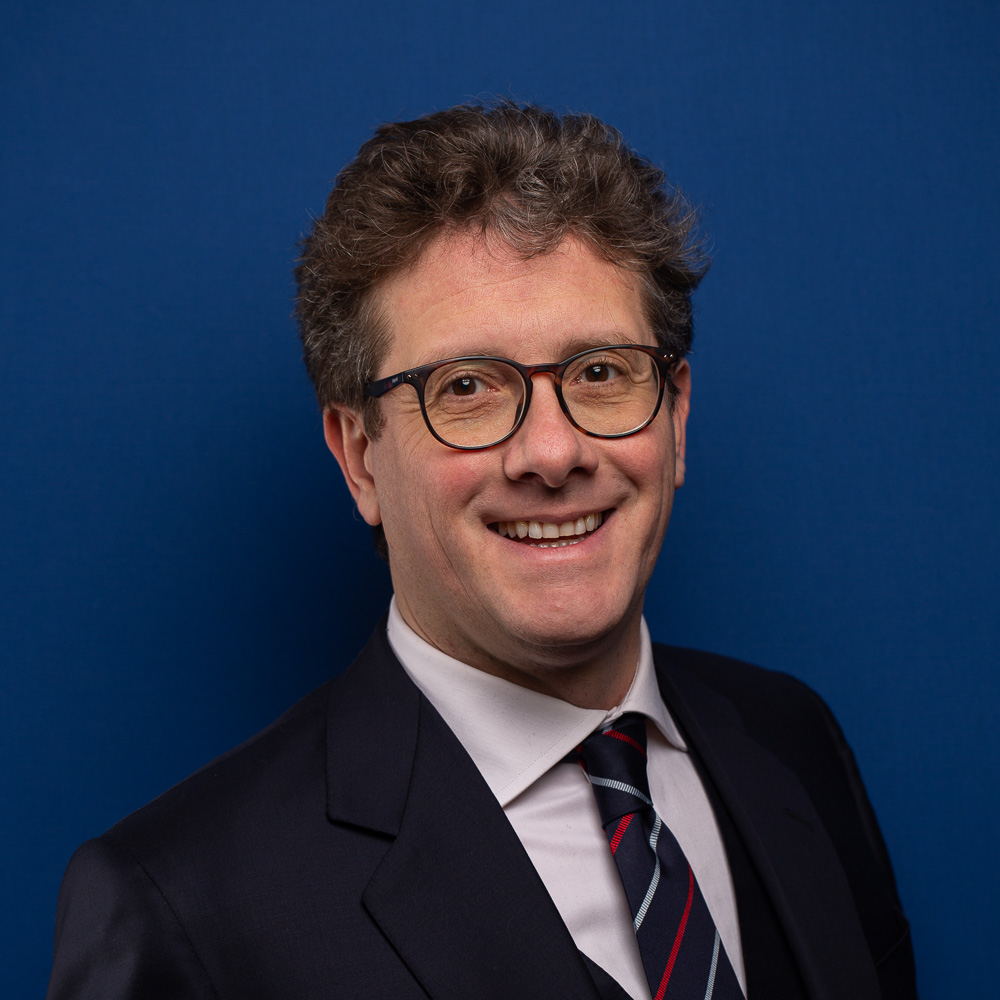
Professor Dr. Enrico di Bella
Seminar: Anticipating Change: Causal Thinking & Strategic Foresight
Lesson: Introduction to Causal Inference
Seminar: Regression Models Recap
These lessons equip participants with a practice-oriented grammar for causal reasoning in complex social systems. We revisit regression as an inferential workhorse to clarify what it can—and cannot—identify, then build upward to potential outcomes, DAG-based identification, common pitfalls (confounding, selection, collider bias), and robustness/validation strategies. Examples are drawn from policy evaluation, regulation of emerging technologies, and organisational change. The focus is on translating institutional questions into tractable designs (experiments, quasi-experiments, observational studies) and on reading model outputs as decision inputs rather than mere statistics. Engineers and data scientists benefit from the policy framing and identification logic; social scientists sharpen assumptions and diagnostics to interface effectively with technical teams.
Enrico di Bella is Full Professor of Social Statistics at the Department of Political and International Sciences the University of Genoa. He earned a degree in Economics and Business from the University of Genoa (2002) and a PhD in Applied Statistics to Economic and Social Sciences from the University of Padua (2006). His research develops statistical models to understand socio-economic phenomena, with a focus on gender-equality metrics, pathological gambling disorders, sustainable tourism, and the evaluation of public policies within data-driven policy-making frameworks. His recent work also explores the use of artificial intelligence—particularly large language models—to support processes in public administration. He has authored numerous scientific publications, helps organize international conferences, and collaborates with public institutions on statistical analyses and policy evaluations.

Professor Dr. Leonardo Salvatore Alaimo
Lesson: Introduction to PLS-PM modeling
Hands-on Lab: Regression and PLS-PM modeling in R
Socio-technical transitions hinge on constructs – readiness, trust, resilience, adoption – that are not directly observed. This module introduces Partial Least Squares Path Modeling as a pragmatic framework to couple measurement (outer model: reflective vs. formative indicators, reliability/validity, HTMT) with structural relations (inner model: paths, mediation, moderation). Emphasis is placed on research design and reporting standards suitable for policy and management audiences. In the R lab, participants specify, estimate, and validate a full PLS-PM using open datasets; they perform bootstrapping, assess model quality, and produce publication-grade tables/figures. Attention is given to how such models interoperate with engineering artefacts and to how latent scores can feed scenario work and decision dashboards.
Leonardo Salvatore Alaimo is a Research Fellow in Social Statistics at the Department of Statistics at Sapienza University of Rome. He completed his Ph.D. in Social Statistics in 2020 at Sapienza, where he cultivated a strong interest in advanced quantitative methods and the measurement of complex social phenomena, including well-being, sustainability, and the synthesis of multidimensional statistical indicator systems. Throughout his career, L.S. Alaimo has participated in numerous international conferences and published extensively in international peer-reviewed journals, working as editor in prestigious international journals. His research is primarily focused on methodological innovation for representing and analyzing societal dynamics. He devotes particular attention to the development and application of multilevel models, composite indicators, and sophisticated multivariate techniques. His work has helped advance the understanding of how to synthesize and analyze complex data in domains such as sustainability and quality of life.

Title: Smart Ports of the Future: AI-Driven Resilience, Sustainability, and Climate-Ready Operations
Professor Dr. Akram Soliman Elselmy is Dean of the College of Engineering and Technology and Professor of Coastal Engineering and Port Planning at the Arab Academy for Science, Technology & Maritime Transport (AASTMT). He is a consultant engineer specializing in harbor planning, navigation, and shore protection. Prof. Elselmy holds a Ph.D. in Civil Engineering from the University of Nottingham (UK) and an M.Sc. from the University of Alexandria. He is a Fulbright Scholar and has conducted research at Texas A&M University. As founding chair of the annual MARLOG conference since 2011 and an active member of international maritime and infrastructure organizations such as IAPH, IAMU, and PIANC, he has contributed extensively to coastal engineering research and port development worldwide.

Professor Dr Sreejith Balasubramanian FHEA
Title: Cognitive Twins in Action: Harnessing AI and Omniverse-Powered Digital Twins to Transform SMEs in the Manufacturing Sector.
This seminar explores how Small and Medium-sized Enterprises (SMEs) can leverage AI-powered digital twins to overcome key industry challenges like fragmented data and inefficient resource allocation.Discover how Cognitive Twins—hyper-intelligent virtual models that learn, reason, and adapt—are reshaping the manufacturing landscape. We will delve into how platforms like NVIDIA Omniverse, OpenUSD, and Generative AI are making this advanced technology accessible and affordable. Join this session to understand the evolution from basic digital models to intelligent twins and learn how AI enables predictive, adaptive, and scalable production solutions. You will see practical examples of how SMEs can design, simulate, and optimize production lines without costly physical prototypes, and uncover applications extending beyond the factory floor into logistics, smart cities, construction, and real estate.Gain both conceptual and practical knowledge to leverage these transformative technologies for long-term growth and a competitive edge in the global market.
Dr. Sreejith Balasubramanian is the Associate Professor and Head of the Centre for Supply Chain Excellence at Middlesex University, Dubai, where he also serves as Chair of the Office of Research. With a PhD from Middlesex University Business School in London, his expertise spans supply chain management, disruptive technologies, sustainability, and knowledge management. Dr. Balasubramanian has consulted for prominent organizations like Bridgestone and the Abu Dhabi Chamber of Commerce and has secured project funding from international bodies, including the UN and the International Organization for Migration. He has authored over 50 publications in leading academic journals. Before his academic career, he gained significant industry experience in the telecom sector as a senior IT project consultant and manager.

Professor Dr. Shawn Mathew
Title: “AI-Driven Public Policy: Harnessing Emerging Technologies for Governance and Social Good”
Professor Dr. Shawn Mathew’s lecture explores the transformative impact of Artificial Intelligence (AI) and emerging technologies on public policy and governance. The talk highlights how these innovations facilitate data-driven decision-making, which can enhance the efficiency, transparency, and inclusivity of governmental systems.
Key applications discussed include the use of predictive analytics, real-time monitoring, and decision support systems to reshape policy and public administration globally. Practical examples range from AI-powered urban management systems that optimize traffic flow and resource allocation to public health platforms that use real-time data to manage pandemics. The lecture also touches on AI’s role in disaster response, fraud detection, and increasing citizen engagement.However, the presentation also addresses the significant challenges that accompany these advancements, such as algorithmic bias, privacy issues, and infrastructural limitations. It underscores the importance of establishing robust regulatory frameworks, like the European Union’s AI Act, to balance technological innovation with ethical considerations. The lecture concludes by emphasizing the need to align technological progress with ethical principles to foster sustainable development and equitable governance, ultimately creating more inclusive and adaptive systems for the 21st century.
Professor Dr. Shawn Mathew is a Senior Lecturer in Marketing at Middlesex University Dubai. He holds a Doctorate in Marketing from the prestigious Indian Institute of Management Ahmedabad (IIMA) and a B.Tech. in Computer Science and Engineering from Mahatma Gandhi University, India. Dr. Mathew has a diverse background that spans both academia and the corporate world. Prior to his current role, he held several key academic positions, including Chairperson of the PGDM Dual Country Program and Chairperson of the Marketing Area at IMT Dubai. He has also served as a faculty member at IMT Ghaziabad and the Indian Institute of Management Jammu. His expertise is sought after, as evidenced by his visiting faculty roles at several renowned institutions, including IIM Kozhikode, IIM Amritsar, IIM Ranchi, and IIM Shillong. Before his academic career, Dr. Mathew gained valuable industry experience with multinational corporations such as Cognizant Technology Solutions (CTS) and the A.P. Moller – Maersk Group.[1] He is an active member of The Global Association of Applied Behavioural Scientists (GAABS) and the Society for Judgment and Decision Making (SJDM). His numerous accolades include being an American Marketing Association (AMA) – Sheth Foundation Doctoral Consortium Fellow (2011), an AIM – AMA Sheth Foundation Doctoral Consortium Fellow (2014), and a semi-finalist for the Pareto Fellowship at the University of Oxford’s Centre for Effective Altruism in 2016.

Prof. Dr. Iham F. Zidane
Title: Smart Renewables: Unleashing AI to Drive a Sustainable Energy Future
The transition toward a sustainable energy future demands innovative solutions that bridge the growing gap between environmental goals and industrial realities. This presentation explores how Artificial Intelligence (AI) can serve as a transformative engineering tool to accelerate the adoption and optimization of renewable energy systems. By leveraging AI for predictive maintenance, operational optimization, and real-time data analytics, the energy sector can enhance efficiency, reliability, and resilience across renewable infrastructures. Through case studies in solar energy optimization, wind turbine performance enhancement, and intelligent energy storage systems for grid resilience, the talk highlights tangible applications of AI that are already shaping a more sustainable world. Ultimately, it emphasizes the symbiotic relationship between human expertise and machine intelligence in driving the global sustainability agenda and building a smarter, cleaner, and more adaptive energy future.
Dr. Iham F. Zidane is the Head of the Energy Research Unit at the College of Engineering and Technology, Arab Academy for Science, Technology and Maritime Transport, and an Associate Professor. Holding a Ph.D. in Engineering and Applied Science from Aston University, Birmingham, UK, he is a Computational Fluid Dynamics (CFD) specialist in renewable energy technologies. His research drives the global shift toward sustainable power by delivering high-efficiency solutions. Dr. Zidane’s work focuses on optimizing wind and solar energy and hybrid power systems, demonstrating how leadingedge scientific insights are key to solving the world’s most pressing energy challenges.

Dr. Mohamed H. Mourad
Title: Smart Factory, Cloud Manufacturing, and Agentic AI: A Framework for Intelligent Production Networks
The convergence of Smart Factory systems, Cloud Manufacturing, and Agentic Artificial Intelligence is transforming the foundation of modern industrial operations. This presentation presents a conceptual and practical framework for building intelligent, connected, and resilient production networks capable of autonomous adaptation and decision-making. By integrating cyber-physical systems, distributed cloud infrastructures, and agent-based AI architectures, the proposed model enables real-time optimization, predictive control, and dynamic resource allocation across manufacturing ecosystems. The session explores how agentic AI extends beyond traditional automation by introducing self-learning and collaborative capabilities that enhance efficiency, flexibility, and sustainability. Through illustrative research insights and industrial examples, the talk highlights the pathway toward next-generation Industry 5.0 environments—where human expertise and autonomous intelligence co-create value within seamless, cloud-enabled manufacturing networks.
Dr. Mohamed Mourad is an Assistant Professor of Industrial and Management Engineering at the Arab Academy for Science, Technology & Maritime Transport (AASTMT) in Alexandria, Egypt, and a Senior Member of the International Institute of Industrial and Systems Engineers (IISE), where he also serves as Faculty Advisor of Chapter 701. He earned his PhD from the University of Bath (UK) in Mechanical Engineering, with doctoral research on interoperability and digital transformation in Cloud Manufacturing and Industry 4.0 systems, resulting in several international publications. Certified by NEBOSH and NASP (USA) and a PMP trainer, Dr. Mourad has authored and co-authored over 25 publicationsin indexed journals and international conferences covering Smart Manufacturing, Industrial IoT, Human–AI Collaboration, and Safety Systems Integration. He is an active reviewer for IEEE, IISE, CIRP, and Elsevier journals, where he regularly evaluates manuscripts on intelligent manufacturing, digital transformation, and production system optimization. Alongside his academic work, he contributes to ABET accreditation and ISO audits and serves as the faculty conference chair of the IISE Africa Regional Conference, promoting innovation, resilience, and sustainable industrial transformation across the region.

Dr. Ahmed Mohamed Nageeb El-belacy
Title: AI-Driven Detection and Sustainable Repair of Structural Defects Using Green Concrete Materials
This study proposes an integrated framework for the detection, analysis, and sustainable repair of structural defects in reinforced concrete beams and walls using advanced Artificial Intelligence (AI) techniques. The research utilizes image processing and machine learning algorithms to identify and classify defect types and severity levels with high precision. Following the automated damage assessment, an experimental program was conducted to develop an eco-efficient green concrete mix designed for
structural repair applications. The mix incorporates recycled demolition waste and silica fume to enhance mechanical performance, reduce cement consumption, and minimize carbon dioxide emissions. The developed material was applied to a prototype structure under simulated field conditions to
evaluate its performance and durability. The results highlight the feasibility and environmental benefits of integrating AI based damage detection with sustainable construction materials. The interdisciplinary approach demonstrates how technological innovation can contribute to resource efficiency, circular economy, and resilient infrastructure aligning directly with the themes of technological and social change promoted by the Cruise School.
Head of Construction and Building Engineering Department, AAST Port Said. Researcher in structural engineering and sustainable construction, with focus on AI applications in the construction industry.




 Users Today : 38
Users Today : 38 Total Users : 13489
Total Users : 13489 Views Today : 74
Views Today : 74 Total views : 29736
Total views : 29736 Who's Online : 1
Who's Online : 1